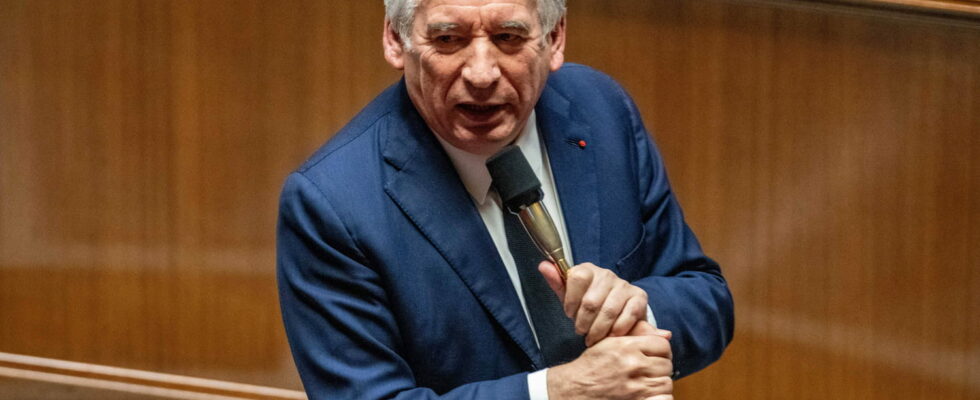François Bayrou will deliver his general policy speech to Parliament this Tuesday, January 14. He will seek to convince the opposition without targeting others in order to avoid censorship. How does he plan to go about it?
Expected before Parliament this Tuesday, January 14 to deliver his general policy declaration, François Bayrou intends to use every hour that remains to him to refine his strategy. It must be said that the stakes are high: the Prime Minister must convince before facing a first motion of censure, the one that La France insoumise announced it would table just after the speech.
François Bayrou’s objective is therefore clear: to avoid censorship by ensuring the support of a majority of deputies in the National Assembly. For this, the voices of the common base and a significant part of the left, in particular the elected representatives of the Socialist Party, are essential, but these are far from being acquired. Both the right and the socialist left are waiting to know François Bayrou’s political line before deciding for or against government censorship. A line which must be clarified during the DGP, but which has been the subject of negotiations for more than a week. The Prime Minister spoke in turn with political forces as well as social and economic partners and condensed the conclusions of his discussions in a speech that he wrote himself, out of sight.
So much so that apart from the indications of the Prime Minister’s various interlocutors, no details on the content of the speech have leaked. The Béarnais entourage simply slipped to BFMTV that François Bayrou wants to propose a method capable of reaching compromises according to a “horizontal, concrete, collective” strategy.
Concrete announcements from François Bayrou?
François Bayrou’s speech must reflect consultations with “political forces, territories, elected officials, and the aspirations of the French”, said a close friend of the Prime Minister. BFMTV. The problem is that not all parties defend the same positions and these are not always reconcilable. Example with pension reform, one of the main subjects of negotiation with the left: if the PS demands the suspension of the measure pushing back the retirement age to 64, the right refuses any suspension or repeal of the reform. To achieve his objective, François Bayrou must therefore play the balancing act and decide without closing the door to anyone.
But with such delicate trade-offs to make, the Prime Minister could be content to give broad outlines during his speech and avoid overly concrete announcements which would single out one side or the other. The Béarnais entourage also confided to BFMTV that the DGP could consist more of an “explanation of thought”, rather than a catalog of announcements or a succession of intentions. The fact remains that the Prime Minister will have to give sufficiently strong commitments and not be content with rhetoric to gain time, because the risk is to disappoint and be censored.
Topics on the agenda for Bayrou’s speech
The Prime Minister should not lack subjects when exposing his ambitions for national policy: pension reform which takes up a large part of the consultations, but also and above all the 2025 budget and the security financing bill (PLFSS) which have still not been presented or adopted.
Arbitrations or logic concerning the 2025 budget should also occupy a lot of space since the situation is still as delicate and the oppositions are entrenching their positions. The Prime Minister, who has decided to start again from Michel Barnier’s copy, however seems to have decided a few points: he wants to maintain recruitment in the justice system, the establishment of a tax on share buybacks, the exceptional contribution of large businesses and the wealthiest households as well as the fight against over-optimization. Conversely, it excludes tax increases for the middle class or an increase in VAT. And a little novelty: there would be a question of a “sacred” budget for key ministries such as Defense, Justice, Education and Ecological Transition.
Besides the budget, other subjects should be invited to Parliament according to BFMTV : the agricultural crisis, institutional reforms such as the accumulation of mandates or the establishment of proportional representation in legislative elections. The Prime Minister could also clarify his policy on immigration since the executive would consider measures in this area, particularly for Mayotte. If François Bayrou seems to judge the necessary measures in this area, he does not specify which ones. The question of the abolition of land law is however raised within the government with Retailleau, Valls and Lecornu who are pleading for an immigration bill in THE Figaroor Darmanin who says he is in favor of the end of soil law. Other ministers, like Borne, consider such a measure too radical.
Note that migration policy is a key point on which the RN conditions its participation in a motion of censure, but that the left defends ideas opposed to those of the extreme right and part of the right on this subject. Whether he goes in this direction or abandons the idea, François Bayrou risks pushing part of the opposition to vote for censure. Here again, the path to compromise should be difficult to find.
